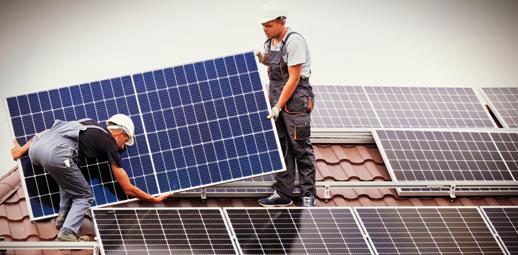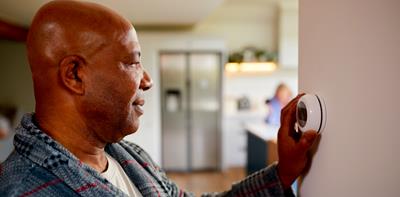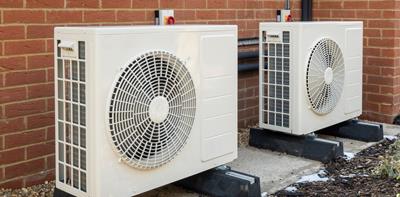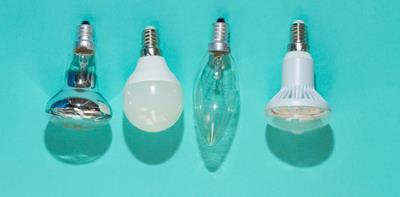
As household costs continue to rise, we’re all looking for ways to reduce our energy bills.
One route you might be considering, is whether to have solar panels installed on your roof. Not only could this save you money, but it’s a great way to help the environment.
EASY AS HACK
Solar panels have lots of advantages, but it’s important to do your research to see whether they could work for your home.
At a glance
- Solar panels could save you money on your electricity as well reducing your carbon footprint.
- You’ll need enough sunlight to make them efficient.
- You may be able to sell any surplus electricity to the National Grid.
How do solar panels work?
Most solar panels use photovoltaic (PV) cells. When the sun shines on the panels, the sunlight is absorbed by these cells. Electrons in the cells gain energy from the sunlight and begin to move, creating an electric current. This current is then turned into useable electricity.
Key benefits of solar panels
- Combat rise in energy bills – Instead of paying for electricity from your energy supplier every month, the majority of it will come from your own solar panels, saving you money in the long term.
- Reduce your carbon footprint – Solar panels are a renewable energy source, meaning you’re not contributing to pollution or other climate-affecting issues by using them.
- Receive payments for extra energy you generate – If your solar panels generate a surplus of energy (i.e. extra energy you don’t use) you can sell it to the National Grid via the Smart Export Guarantee (SEG) scheme.
- Increase energy independence – Solar panels can help you on your way to being self-sufficient when it comes to energy. If you have enough solar panels and enough sun you may not even need to supplement it with energy from your provider.
Solar panels can also increase the value of your home.
Trade body Solar Energy UK has calculated that adding solar panels could increase a home's sale price by around £1,800[1].
This research was published back in October 2021, when energy prices were lower. So, solar panels could look even more appealing to home buyers now.
Always carry out thorough research before purchasing.
Disadvantages of solar panels
- High upfront investment – solar panels can cost upwards of £7,000 depending on how many solar panels you want, the size, location and labour costs.
- Requires sun – if you live in an area that doesn’t get a lot of sunlight, or your home isn’t in the right place to get a lot of sun, you may find solar panels are not an efficient source of energy.
- Maintenance costs – solar panels need to be cleaned every six months or so to make sure they’re running at maximum efficiency. They also need to be replaced at around the 25-year mark and will also require an annual service to keep them in top form. Checkatrade provide a solar panel maintenance cost guide so you can work out how much it would cost for you.
How much do solar panels cost?
The cost of solar panels will vary from household to household. According to the Energy Saving Trust, the average domestic solar panel system is 3.5k Wp (kilowatt peak). That would cost around £7,000.
Your cost will depend on:
- The size of the solar panels
- How many solar panels you want
- The type of solar panels
- The size of your house
- The installation process
- Whether you get any extra equipment (ie solar battery)
- Location
- Labour costs
Paying for your solar panels
There are various options to make paying for solar panels more affordable.
- Pay in full – the simplest way to pay for solar panels is to pay for everything in one go
- Pay monthly – much like a phone contract, you can pay for your solar panels in monthly instalments
- Pay a deposit – you can pay a deposit for your solar panels and once the installation is complete you can pay the rest
- Funding – depending on your eligibility, you may be able to get a government loan to help pay for your solar panels. The government has lots of advice to help you get energy-saving improvements for your home.
How long do solar panels last?
Solar panels have an average lifespan of 25 years, after which they’ll most likely need replacing. However, with good care and maintenance, your solar panels may last for longer.
How to maintain solar panels
Solar panels will need to be cleaned every six months at a minimum. However, if where you live is particularly dusty or there’s a lot of pollution in the air, they may need cleaning more often.
To clean solar panels you can either hire an expert to do it for you or just use cold water. You should only attempt to clean them yourself if they are within safe and easy reach.
You may also need to remove snow from your solar panels in the winter.
Best ways to use solar energy
The best way to use solar energy is, first and foremost, during the day. Unless you have a solar battery, you won’t be able to store the electricity your solar panels generate.
Adding a battery to your solar panel system allows you to store any unused solar energy in the day and use it at night instead. For every unit of electricity stored in a battery and used at night, it will save you around 14p.
It’s best to do all the things that require large amounts of electricity during the day including:
- Charging an electric vehicle
- Running the washing machine/tumble dryer
- Running the dishwasher
If you do have a battery, you can also store excess solar energy for later use or you can sell it back to the National Grid.
How many solar panels do I need?
This will depend on how much electricity your home uses. The more you use, the more solar panels you’ll need.
The number of solar panels you’ll need will also depend on the available roof space, the efficiency of the panels and how much sunlight your home gets.
Are solar panels covered by home insurance?
The good news is that many home insurance policies will cover solar panels as standard.
Specifically, they’ll be covered under your building insurance policy. Buildings insurance covers the structure of your home, which includes the roof, walls and windows.
Although you should be covered, it’s always a good idea to double check your policy wording or contact your insurer to check that’s the case. You may also need to inform your insurance company once any work has been completed.
Do you need planning permission for solar panels?
Solar panels mounted on a roof or wall of a private house don’t usually require planning permission, but it’s wise to check with your local authority.
Can I put solar panels on a flat roof?
Yes, installing solar panels on a flat roof is possible. It can even offer easier installation and maintenance compared to angled roofs. However, you might need more space per kW than you would with an angled roof.
Can solar panels power a house on their own?
You could, in theory, power your entire home just using free sunlight. A system of up to 4kWp could generate more than 3,000kWh per year, according to Which? [2]
However, the amount of energy that can be generated with solar panels will depend on several factors, including the location, roof position and which way the roof faces.
Can I install solar panels in my garden?
Yes, although if the installation is more than 9m2 you will require planning permission
How long does it take to break even on solar panels?
It depends on several factors, including the:
- Amount of sunshine and daylight
- Number of solar panels
- The price of electricity and the Smart Export Guarantee tariff
- The amount you paid for solar panels and installation
To read more about how to care for and protect your home, go to Solved.
[1] https://solarenergyuk.org/news/solar-installation-could-add-1800-to-house-prices/
[2] https://www.which.co.uk/reviews/solar-panels/article/solar-panels/solar-panel-costs-aDxBY2v7kr60


